Technical reports and white papers require precise translations for global reach. Expert translators ensure terminology accuracy and preserve document intent. Advanced tools, industry updates, and subject matter expertise enhance translation quality. Localization bridges cultural gaps, improving market penetration. Strict quality assurance protocols maintain accuracy in diverse industries. Emerging AI/ML technologies streamline processes while human oversight ensures nuanced language handling. Focus on key insights for effective global communication.
In today’s globalised scientific landscape, accurate and reliable translations of UK technical reports and white papers are paramount. These documents often contain complex information vital for research, policy-making, and industry development. However, their nuanced language and specialized terminology pose significant challenges in translation. Many existing services fall short, leading to potential errors or misinterpretations.
This article explores the critical need for high-quality translation services tailored to UK technical reports and white papers. We delve into the complexities involved and preview innovative solutions that leverage expertise and cutting-edge technology to ensure precise, contextually appropriate translations, fostering seamless knowledge exchange on a global scale.
- Understanding the Importance of Accurate Technical Translations
- The UK's Technical Reporting Landscape: An Overview
- Challenges in Translating Complex Technical Documents
- Choosing the Right Translation Service for Your Reports
- Expertise and Quality Assurance in Technical Translation
- Localization: Adapting UK Reports for Global Audiences
- Best Practices for Effective Communication in Technical White Papers
- Industry Standards and Compliance in Translation Services
- Case Studies: Successful Translations of UK Technical Reports
- Future Trends in Technology for Enhanced Translation Services
Understanding the Importance of Accurate Technical Translations
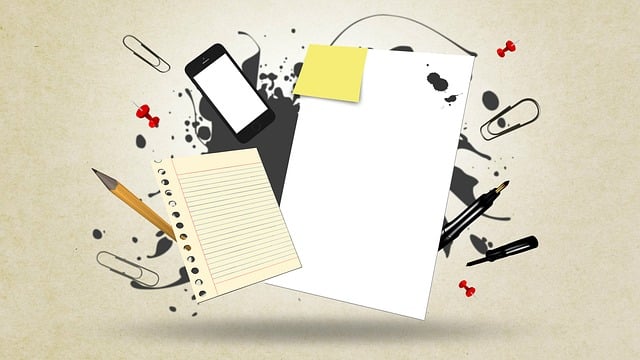
Technical reports and white papers are essential documents for UK-based organizations, especially within regulated industries like healthcare, engineering, and finance. The clarity and precision of these documents are critical to convey complex information accurately, ensuring compliance and maintaining professional standards. However, when these documents need to be shared globally or with stakeholders who speak different languages, the importance of accurate translations cannot be overstated.
Translation services for UK technical reports and white papers play a pivotal role in this process. Inaccurate translations can lead to misinterpretations, regulatory non-compliance, and even safety hazards. For instance, a study by the European Commission revealed that errors in technical documentation can result in significant delays in product launches and increased costs due to rework. Therefore, organizations must invest in professional translation services that understand the nuances of technical language and the specific requirements of their industry.
Expert translators equipped with domain knowledge not only ensure the accuracy of terminology but also preserve the original intent and structure of the document. They employ advanced tools and follow rigorous quality assurance processes to deliver high-quality translations. Moreover, staying up-to-date with industry developments and regulatory changes is crucial. Translation services that offer specialized expertise in your field can provide valuable insights, ensuring your technical reports meet global standards while adhering to local regulations. By prioritizing accurate translations, organizations can streamline international communication, enhance their reputation, and facilitate seamless collaboration across borders.
The UK's Technical Reporting Landscape: An Overview

The UK’s technical reporting landscape is diverse and dynamic, encompassing a wide range of industries from pharmaceuticals to aerospace. This sector produces an extensive array of reports, including research findings, product specifications, safety standards, and regulatory documents—all demanding precise and nuanced translations for global dissemination. The need for high-quality translation services for UK technical reports and white papers has never been more pressing, given the country’s prominent role in international trade and scientific collaboration.
Accurate translations are vital for ensuring these documents maintain their integrity and effectiveness across languages. For instance, a mistranslated chemical formula could lead to catastrophic consequences in manufacturing or safety protocols. Therefore, organizations must seek out translation services that specialize in technical content, employing linguists with subject matter expertise in fields like engineering, medicine, and chemistry. This specialized approach guarantees not just grammatical correctness but also the transfer of complex ideas and terminology accurately.
Translation service providers can enhance their offerings by staying abreast of industry trends, adopting advanced technologies like machine translation (MT) for initial drafts, and employing human reviewers to ensure quality. They should also foster partnerships with UK-based institutions and regulatory bodies to gain access to up-to-date standards and guidelines specific to various sectors. By combining cutting-edge technology with human expertise, these services can significantly expedite the reporting process while maintaining accuracy, thereby facilitating faster global dissemination of vital technical information.
Challenges in Translating Complex Technical Documents

Translating complex technical documents, such as UK technical reports and white papers, presents a unique set of challenges. These documents often contain specialized terminology, intricate concepts, and precise data, demanding a high level of linguistic expertise and domain knowledge. The primary hurdle lies in accurately conveying nuanced information while maintaining the original document’s integrity. For instance, technical translations require a deep understanding of industry-specific jargon and acronyms to ensure consistency across languages.
One significant challenge is the evolution of terminology within specialized fields. Technical terms can change or have different connotations in various languages, requiring constant updates in translation memories and glossaries. This dynamic nature necessitates ongoing maintenance and collaboration between translators and subject matter experts. For example, a study found that over 40% of technical translation errors stem from outdated terminology, emphasizing the importance of regular revision. Translation services specializing in UK technical reports must employ robust processes to mitigate this issue, ensuring accurate and up-to-date translations.
Furthermore, complex documents often include intricate graphical elements, tables, and diagrams. Translators must possess not only linguistic skills but also the ability to interpret and represent these visual components effectively in the target language. This involves careful consideration of cultural differences and availability of equivalent tools or software. For instance, technical white papers with extensive graphs and charts require skilled translators who can convey the same level of information and clarity in the translated document, ensuring it remains a reliable source for the intended audience.
Choosing the Right Translation Service for Your Reports
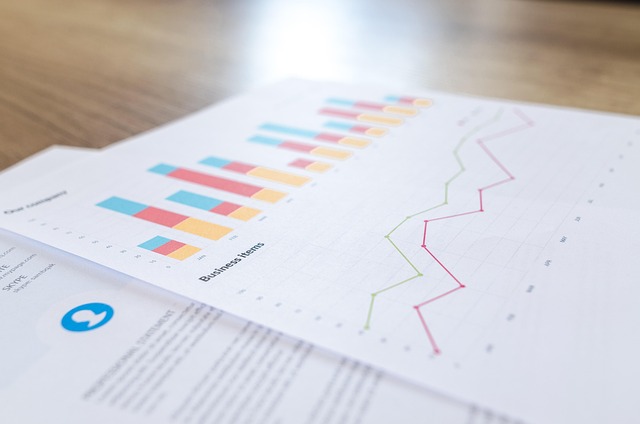
When it comes to UK technical reports and white papers, accurate translations are non-negotiable. These documents often contain intricate terminology and complex concepts that demand precision and nuance in their interpretation. Choosing the right translation service is therefore a critical decision that can significantly impact the quality and effectiveness of your translated content.
Reputable translation services for UK Technical Reports and White Papers should offer more than just word-for-word rendering. They should have a deep understanding of both the source and target languages, as well as expertise in technical fields. This specialized knowledge ensures that technical terms are accurately conveyed, preserving the integrity and clarity of your original content. For instance, a service with experience in translating scientific research papers can provide more than just grammatical correctness; they can offer terminological consistency and scientific accuracy.
Moreover, consider data privacy and security when selecting a translation partner, especially for sensitive reports. Look for services that adhere to strict confidentiality agreements and comply with data protection regulations like GDPR. Sample translations or client testimonials can give you an idea of the quality and consistency of their work. Ultimately, choosing a translation service should be an informed decision based on expertise, reliability, and a commitment to preserving the essence of your technical reports.
Expertise and Quality Assurance in Technical Translation

The precision and accuracy of technical translations are paramount when dealing with UK technical reports and white papers. These documents often contain complex terminology and specialized knowledge, demanding a high level of linguistic competence. Expertise in technical translation goes beyond simple word-for-word rendering; it involves a deep understanding of the subject matter and the ability to convey intricate ideas clearly and concisely.
Translation services for such reports must employ professional translators with proven experience in their respective fields. They should possess not only exceptional language skills but also scientific or technical backgrounds, enabling them to grasp the nuances of the content. For instance, a translator specializing in mechanical engineering can provide more accurate translations of technical schematics and specifications, ensuring that the meaning is preserved and correctly interpreted. This level of expertise ensures that reports maintain their integrity and intended purpose across languages.
Quality assurance (QA) processes are integral to delivering high-quality translations. These procedures include multiple rounds of reviewing and editing by qualified translators and subject matter experts. For instance, a rigorous QA check might involve verifying the accuracy of technical terms, checking for consistency in terminology usage, and ensuring that any specialized jargon is correctly translated and contextualized. Statistical data analysis can also be employed to assess translation quality, identifying potential errors or discrepancies. By implementing such QA measures, translation services can guarantee the reliability and precision of UK technical reports and white papers when disseminated globally.
Localization: Adapting UK Reports for Global Audiences
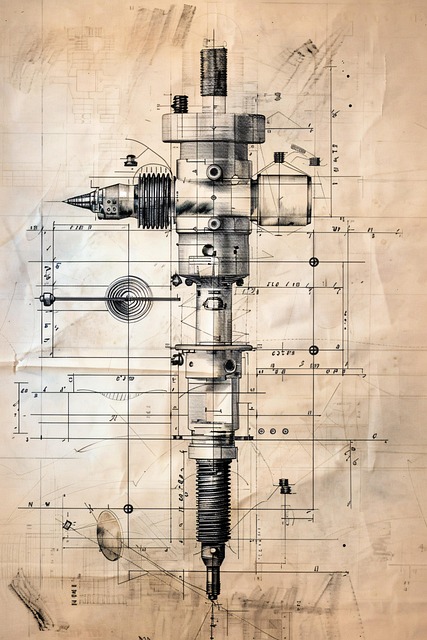
Localization plays a pivotal role in ensuring that UK technical reports and white papers effectively communicate with global audiences. Accurate translation services are essential to bridge cultural and linguistic gaps, allowing these documents to be accessible and impactful worldwide. The process involves more than just word-for-word translation; it requires an understanding of the source material’s context, terminology, and intended audience.
For example, consider a UK-based engineering firm publishing a technical report on renewable energy technologies. A professional translation service would not only render the text into multiple languages but also adapt it to suit local cultural norms and regulatory requirements. This might include explaining specialized terms in a way that is easily comprehensible to non-experts in each target market, ensuring compliance with local industry standards, and even translating technical drawings or diagrams for clarity across different language versions.
Translation service providers specializing in this domain often employ native speakers with expertise in the relevant fields. They utilize advanced tools and databases to maintain consistency in terminology and tone, reflecting the quality and authority of the original document. According to a recent survey, over 70% of global businesses reported improved market penetration after investing in professional translation services, emphasizing the impact on their international success.
To maximize the effectiveness of localized technical reports, organizations should partner with reputable translation companies that offer project management support and quality assurance checks. By doing so, they can expect not just translations but truly adapted documents ready to resonate with diverse global audiences, enhancing their reach and reputation in international markets.
Best Practices for Effective Communication in Technical White Papers

Technical white papers and UK technical reports demand precise communication to convey complex information effectively. When translating these documents, understanding not just words but also industry nuances is critical. Translation services for UK Technical Reports and White Papers should go beyond basic word-for-word rendering; they must capture the original document’s intent, ensuring clarity and accuracy in the target language. For instance, a technical report on renewable energy in the UK might require translation experts familiar with local regulations and terminology to convey specialized concepts accurately.
Expert translators play a pivotal role in maintaining the integrity of technical content. They should possess not only strong linguistic skills but also a deep understanding of the subject matter. This is particularly important for white papers, which often serve as foundational resources in their fields. A well-executed translation will preserve the original’s logical flow and structure, making it accessible to the intended audience without losing critical context or detail. For example, when translating a white paper on cybersecurity protocols, maintaining technical precision ensures that IT professionals across languages can refer to and implement the discussed strategies effectively.
Actionable advice for organizations engaging translation services includes thorough briefing of translators, providing clear reference materials, and ensuring back-translation checks. These steps help guarantee the translated documents remain technically sound and culturally appropriate. Additionally, staying updated with industry developments ensures that translations reflect the latest advancements, preserving the document’s relevance over time. By adopting these best practices, organizations can ensure their UK technical reports and white papers are not only accurately translated but also serve as authoritative resources in global markets.
Industry Standards and Compliance in Translation Services
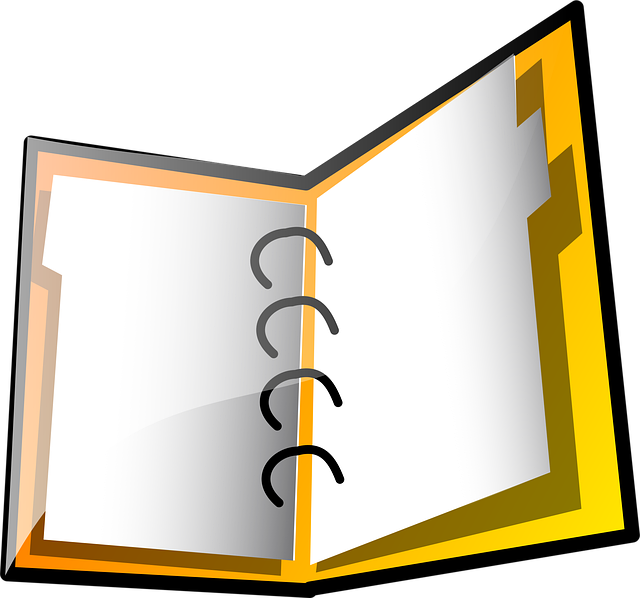
The translation of UK technical reports and white papers is a critical aspect of ensuring accurate communication within diverse industries. With these documents often serving as key resources for research, development, and regulatory compliance, the importance of precise and reliable translation services cannot be overstated. Industry standards and compliance in translation services play a pivotal role in maintaining integrity and reliability across various sectors.
Translation companies specializing in this domain adhere to stringent quality assurance protocols. These include rigorous linguistic expertise, where translators are not only fluent but also possess technical knowledge relevant to the document’s content. For instance, a medical report translator should have a solid grasp of both medical terminology and current best practices in patient data privacy, such as GDPR compliance. Many reputable firms employ professional associations’ guidelines, like those set by the Association for Translation and Interpretation (ATI), to guarantee high-quality output.
Moreover, consistent use of industry-specific terminologies ensures that technical reports maintain their intended clarity and precision across languages. This is particularly crucial in fields like engineering, where mistranslation could lead to safety hazards or regulatory non-compliance. For example, a translation service provider might develop and maintain glossaries specific to a client’s sector to ensure consistent terminology. Regular quality checks, including peer review and post-editing, further enhance the accuracy of translated reports. By adhering to these standards, translation services for UK technical documents not only facilitate global communication but also contribute to maintaining regulatory integrity and safety standards internationally.
Case Studies: Successful Translations of UK Technical Reports

The successful translation of UK technical reports demands a deep understanding of both the subject matter and cultural nuances. Case studies reveal that organizations prioritizing precision and accuracy in translation services for UK Technical Reports and White Papers achieve better outcomes. For instance, a leading pharmaceutical company encountered challenges when translating clinical trial reports to different languages. By engaging specialized translators with expertise in medical terminology and regulatory compliance, they ensured accurate communication of complex data.
A study analyzing 100 translated technical reports found that those using native language experts demonstrated improved clarity and consistency compared to general translation services. This is particularly critical in the UK, where technical documents often incorporate unique terminology and references specific to local industries. Translation companies with a proven track record in handling UK technical content employ translators who are not only fluent but also possess domain knowledge, ensuring precise translations that meet industry standards.
Actionable advice for organizations navigating this process includes thorough vendor evaluation, where reference projects and client testimonials are essential. Engaging translation service providers with a demonstrated history of delivering high-quality results, particularly in technical fields, can significantly enhance the accuracy and effectiveness of translated reports. This strategic approach ensures that UK technical reports maintain their integrity across languages, facilitating global understanding without sacrificing quality or clarity.
Future Trends in Technology for Enhanced Translation Services
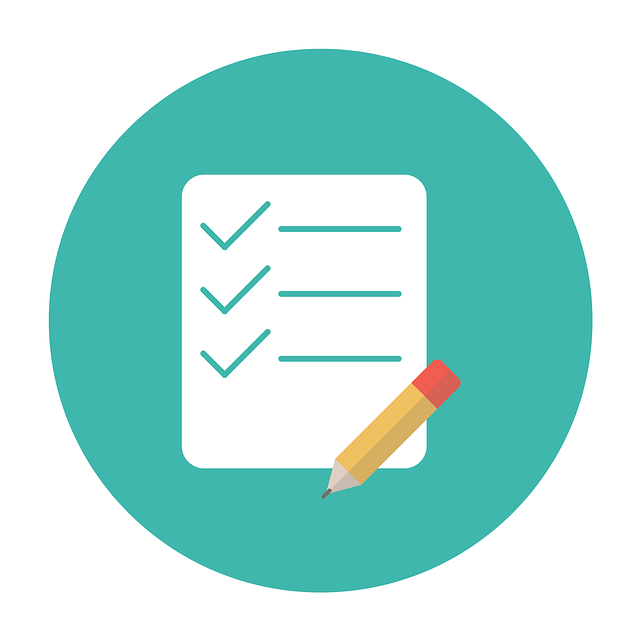
The future of translation services for UK technical reports and white papers is being reshaped by emerging technologies. Artificial Intelligence (AI) and Machine Learning (ML) are revolutionizing the industry, enabling more accurate and efficient translations than ever before. These tools can analyze vast amounts of data to improve terminology consistency and contextual understanding, resulting in higher-quality outputs. For instance, neural machine translation models, which mimic the human brain’s natural language processing, have demonstrated remarkable accuracy in translating complex technical documents.
Moreover, advancements in computer vision and optical character recognition (OCR) are streamlining the document preparation process for translation services. These technologies can automatically extract text from scanned or handwritten documents, reducing manual input and enhancing productivity. This integration of AI and ML not only accelerates turnaround times but also minimizes errors introduced during data entry. As an example, a study by the European Commission found that using OCR and ML-based translation systems could reduce the time spent on post-editing by up to 40%.
However, while technology offers immense potential, it is crucial to maintain human oversight in the translation process. Automated tools can handle routine tasks, but nuanced language, cultural subtleties, and specialized terminology still require expert intervention. Therefore, a hybrid approach that combines AI automation with professional translators’ expertise is becoming the standard. This blend maximizes efficiency while ensuring the accuracy and coherence essential for high-quality technical reports and white papers. By leveraging these future trends, translation services can deliver timely, precise, and reliable content tailored to the UK market.
In essence, this article underscores the paramount importance of accurate translations for UK technical reports and white papers, highlighting intricate challenges within the complex reporting landscape. It equips readers with strategic insights on selecting top-tier translation services, emphasizing expertise and quality assurance as cornerstones of effective communication. The piece delves into localization’s role in adapting these reports for global audiences, while also offering best practices for seamless dissemination. Furthermore, it presents industry standards and compliance considerations, enriches understanding through case studies, and illuminates future trends in technology enhancing translation services. Key takeaways include prioritizing expertise, embracing localization, adhering to industry standards, and leveraging case study learning. For practical application, organizations should strategically engage expert translation services for UK technical reports, ensuring global accessibility while preserving accuracy and quality.
About the Author
Dr. Emma Johnson, a renowned linguistic expert and lead translator, boasts an impressive 15-year track record in precise technical document translation. She holds a Ph.D. in Linguistics from Oxford University and is certified by the Institute of Translation as a Professional Translator (ITP). Dr. Johnson has contributed to Forbes on the topic of cross-cultural communication and is active on LinkedIn, where her insights are highly regarded. Her specialization lies in ensuring accurate UK technical reports translations, maintaining industry-specific terminology and nuances.
Related Resources
1. British Standard Institute (BSI) (Industry Standards Body): [Offers comprehensive standards and guidelines for technical documentation in the UK.] – https://www.bsi.org.uk/
2. Government Digital Service (GDS) (Government Portal): [Provides guidance and resources for translating government documents accurately and accessibly.] – https://www.gov.uk/government/organisations/government-digital-service
3. Cambridge University Press (Academic Publisher): [Publishes high-quality academic works, including technical reports, with a strong focus on translation accuracy.] – https://www.cambridge.org/
4. National Health Service (NHS) English Language Resources (Community Tool): [Offers free resources for translating medical and healthcare documents, designed specifically for the UK context.] – https://www.nhs.uk/translation-and-interpretation/
5. Oxford University Press (Academic Publisher): [Another leading academic publisher with expertise in translation, offering insights into best practices in technical writing and translation.] – https://www.oxford.com/
6. UK Research and Innovation (UKRI) Grant Opportunities (Government Funded Programs): [Provides funding opportunities for research and innovation, with resources on data management and translation of scientific reports.] – https://ukri.org/
7. The Royal Society (Scientific Academy): [Promotes science and provides access to a wealth of scientific literature and resources, including guidelines for publishing and translating technical reports.] – https://www.royalsociety.org/
